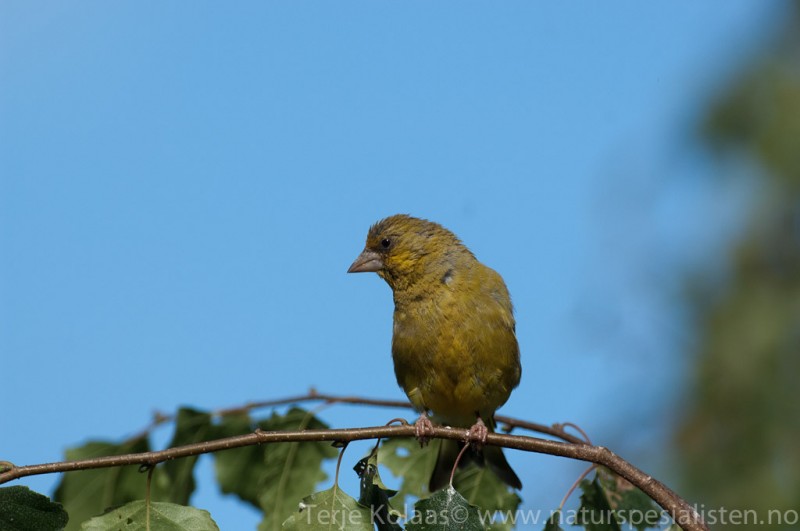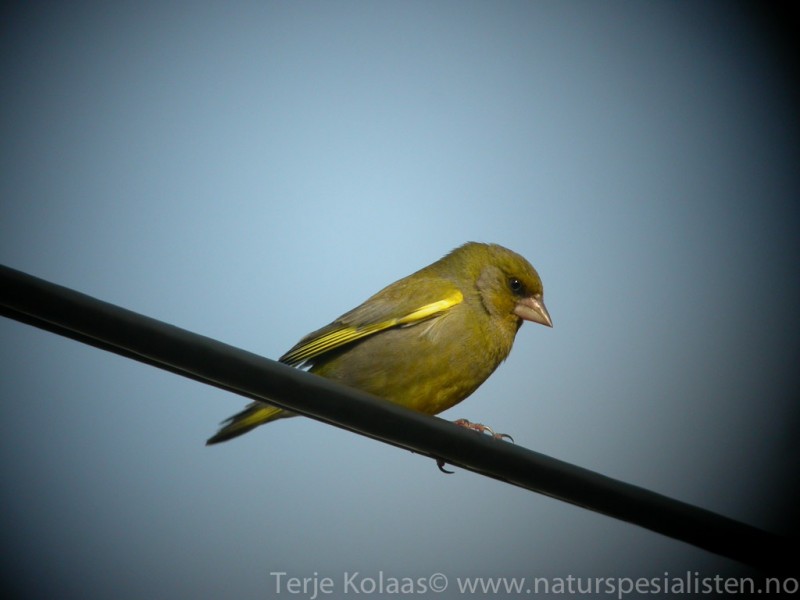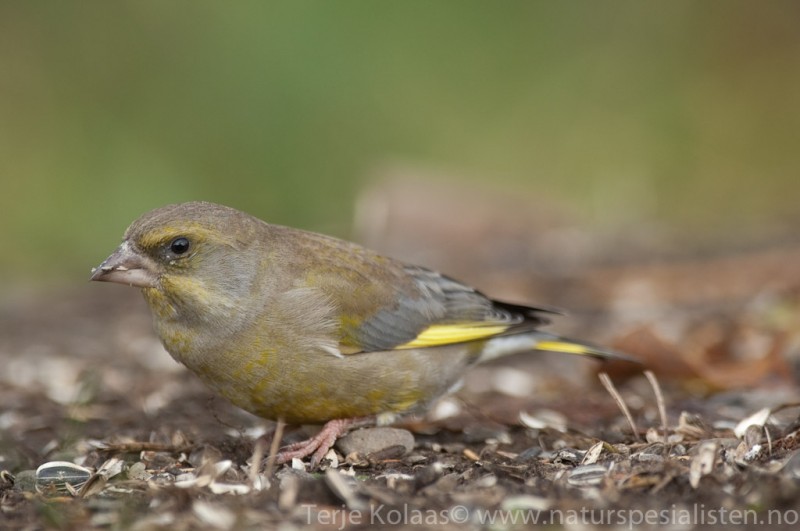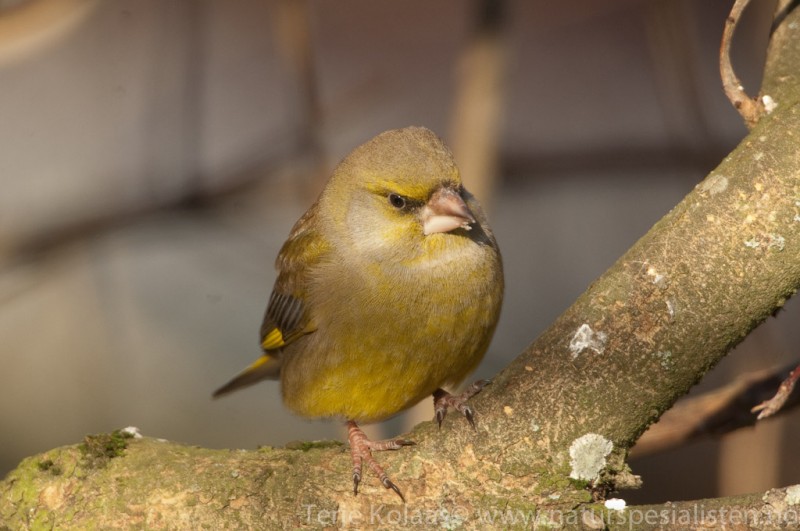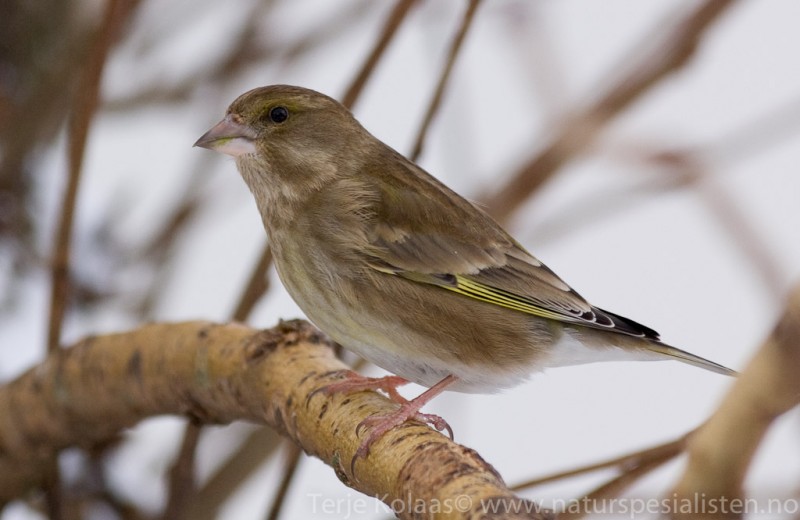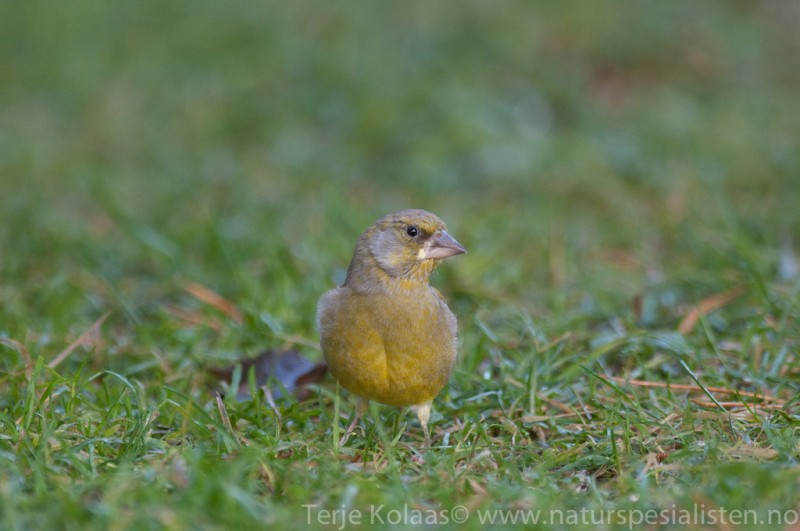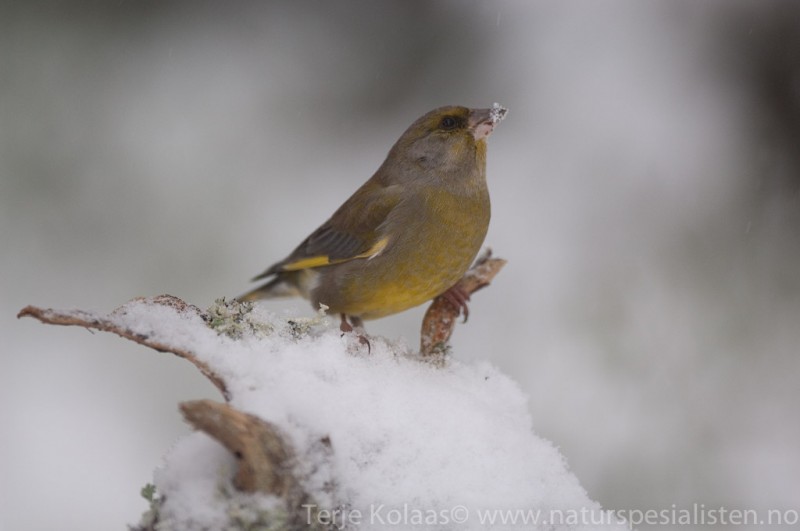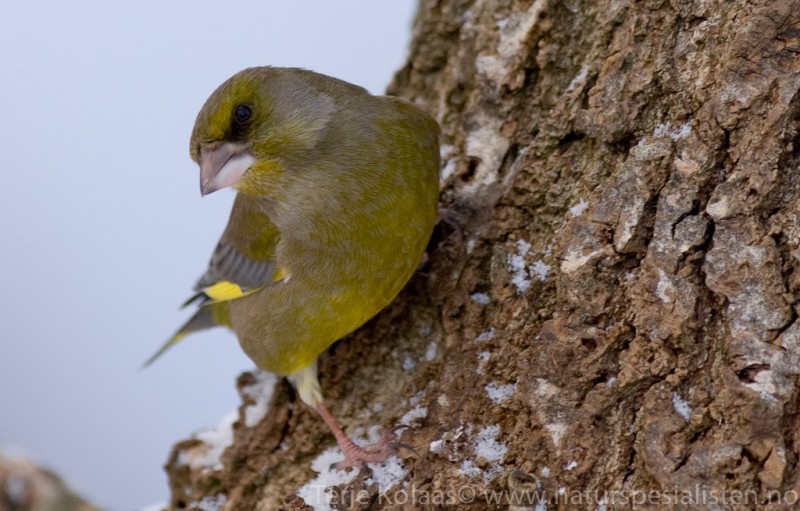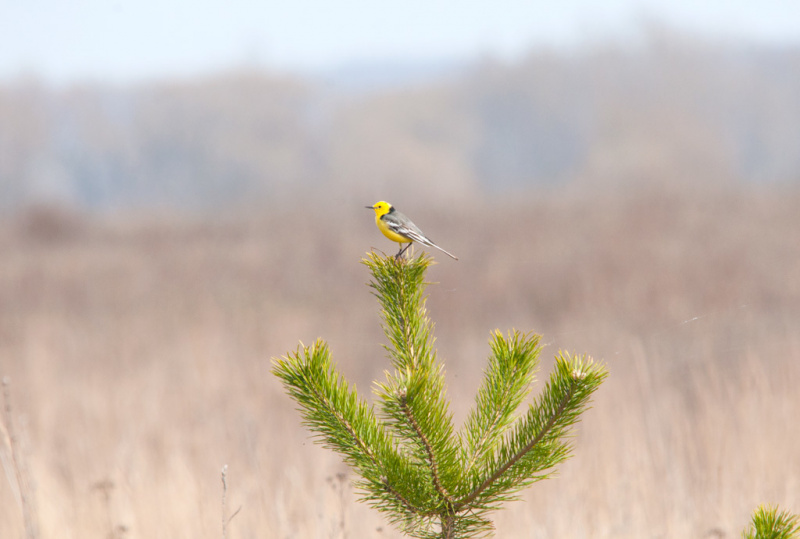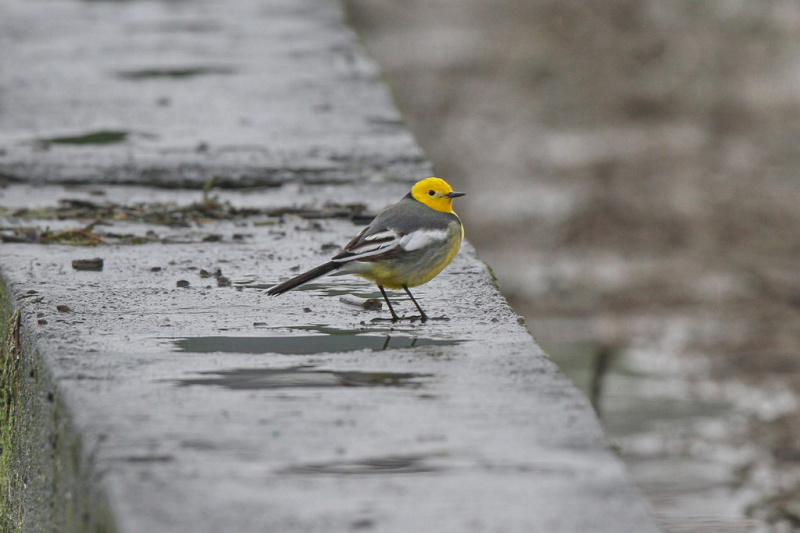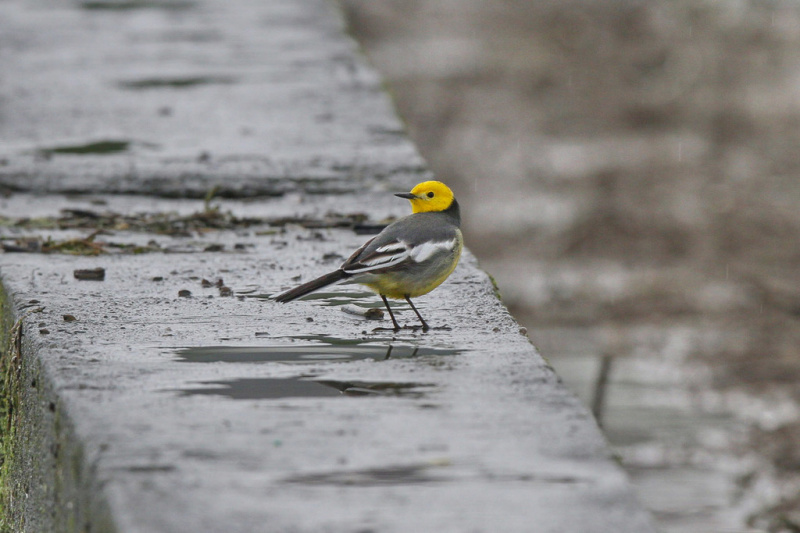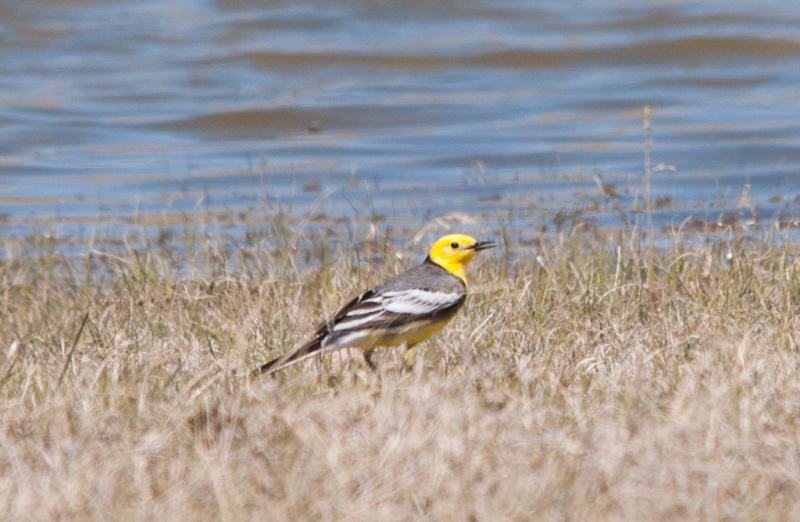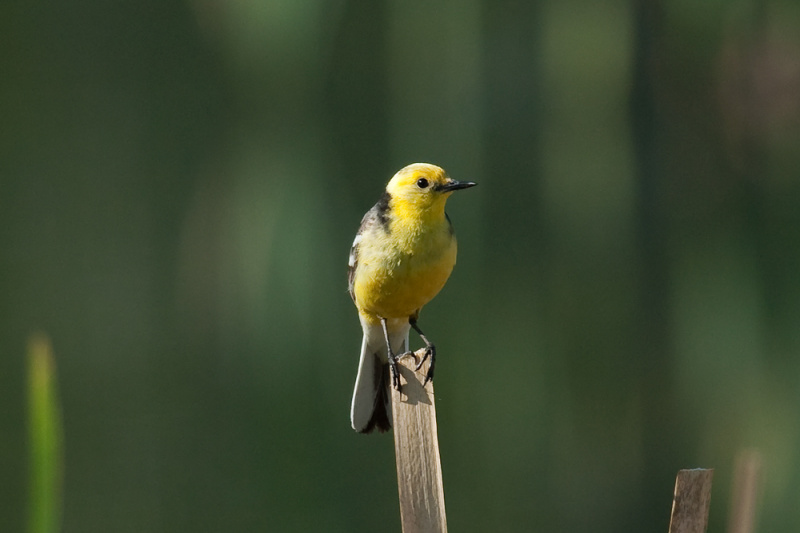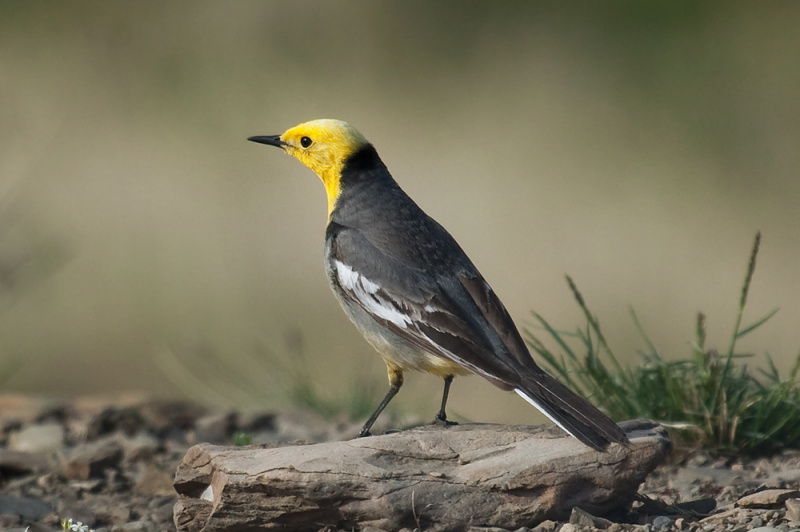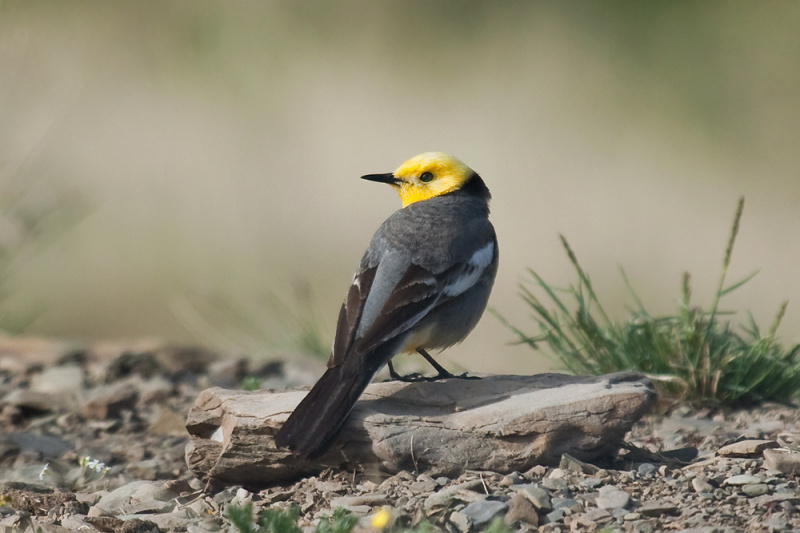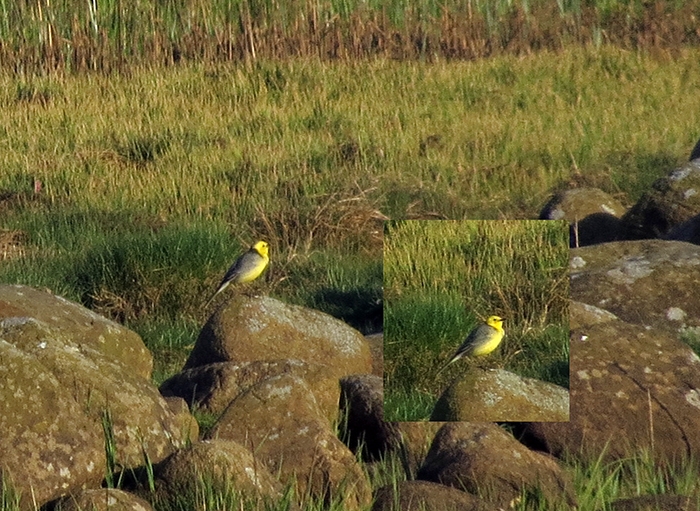Greenfinch (Chloris chloris)
Citrine Wagtail (Motacilla citreola)
Plumage green, grey and yellow. Note bright, yellow base of primaries and sides of tail in all ages and plumages. Deep and heavy conical bill. Tail forked and quite short. Plump build. Female more grey than male, with back diffusely streaked in brown and underparts greyish. Juveniles similar to females, with even more drab colours and heavier streaking (also on underparts). Strongly undulated flight. Often appears somewhat clumsy when trying to perch on feeders etc.
Sound:Song composed of various sequences of linked sounds, repeated in a vibrating manner; "trrrrrrrrr", "chechechecheche". Sometimes resembles Brambling when making the wheezy "rrrrrrrrr" sound, but differs in being harsher and by "pulling" the pitch downwards (or sometimes upwards) at the end. Contact call a fairly resonant "chep-chep", resembling Redpoll, but less nasal and with a fuller tone. Also a sharp, drawn, ascending "kooeee", (perhaps not obviously recognized as a finch).
Song:
Distribution:
Xeno-canto: map
Ecology:Birdlife ecology
Links:
Observation.org Latest observations
Image search Flickr NB! May give other species
CCAdult male easily recognized with all yellow head with dark edges and grey back. Prominent white wing-bars and all dark bill, lacking the pale base of Yellow Wagtail. Females and adult winter lacks the dark lore-stripe of Yellow Wagtail, and the flanks are grey. The same applies to the juveniles. These also give a very grey impression, almost resembling a Pied Wagtail without the dark breast-pattern. Juvenile Yellow Wagtails have a less grey and more olive tone to their backs. The dark facial markings/earcoverts of females/winter/juveniles birds are usually framed by the continuation of the strong supercilium. Some Yellow Wagtails are very similar to Citrine, and call and tail length should be considered as well (tail longer in Citrine).
Sound:Contact call resembles Yellow Wagtail, but is harsher with a more buzzing quality, and of shorter duration. The pitch is more constant, lacking the rise and fall of Yellow Wagtail. The song is a loose repetition of phrases, comprised of disyllabic or monosyllabic contact calls.
Contact call:
Distribution:
Wikipedia: map (se also Xeno-canto below)
Ecology:Birdlife ecology
Links:
Observation.org Latest observations
Image search Flickr NB! May give other species
CCSounds:Recorded by Jelmer Poelstra,http://www.xeno-canto.org ,CC license

 English
English Albanian
Albanian
 Armenian
Armenian
 Bulgarian
Bulgarian
 Catalan
Catalan
 Croatian
Croatian
 Czech
Czech
 Danish
Danish
 Dutch
Dutch
 Finnish
Finnish
 French
French
 Georgian
Georgian
 German
German
 Greek
Greek
 Hungarian
Hungarian
 Italian
Italian
 Latvian
Latvian
 Lithuanian
Lithuanian
 Macedonian
Macedonian
 Norwegian
Norwegian
 Polish
Polish
 Portuguese
Portuguese
 Romanian
Romanian
 Russian
Russian
 Sami : Lule sami
Sami : Lule sami
 Sami : North sami
Sami : North sami
 Sami : South sami
Sami : South sami
 Scientific names
Scientific names
 Serbian
Serbian
 Spanish
Spanish
 Swedish
Swedish
 Ukrainian
Ukrainian


